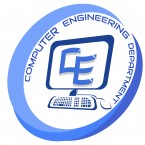Course Code: 1

The field of Computer Engineering is an amalgamation of diverse fields including Electrical Engineering and Computer Science which is required to develop computer hardware and software. The Computer Engineering students undergo training in Electronics, Electricals, Software Design and Hardware-Software apart from software basics and training. Computer engineers are required to have knowledge of computer Hardware, Software, Microprocessors, Microcontrollers and also circuit design.
Usually the task of Computer Engineers is to write software codes and should have the knowledge of diverse fields including Programming Languages, Database, Logic Gates, Artificial Intelligence, User Interface, controlling of Microcontrollers, Embedded Systems, Operating Systems. Computer engineers are also suited for robotics research, which relies heavily on using digital systems to control and monitor electrical systems like motors, communications, and sensors.
The computer engineering department was established in 2009. The department offers regular undergraduate program in “Computer Engineering” having intake of 60, affiliated to University of Mumbai.
The department has young dynamic, qualified teaching faculty and non-teaching staff with well-equipped laboratories. The teaching faculties are actively involved and also encourage students in research and publishing papers in reputed journals and conference.
All technical activities of the department are conducted under the banner of CSI-VIT.
Affiliated to: University of Mumbai
Duration: 4 years, Full Time
Academic Year: 2 semesters each
Sanctioned Intake: 60
Exam Structure: Theory, Practical, Oral, Term Work
Theory Exam: Conducted by University of Mumbai
Vision
-
To develop competent citizens who will be valuable contributors in the field of computer engineering.
Mission
Programme Educational Objectives (PEOs)
Within three to four years of graduation:
Programme Specific Outcomes
Graduates will be able to:
Programme Outcomes
Engineering Graduates will be able to:
Apply knowledge of mathematics, science, engineering fundamentals and an engineering specialization to the solution of complex engineering problems.
Identify, formulate, review research literature, and analyze complex engineering problems reaching substantiated conclusions using first principles of mathematics, natural sciences, and engineering sciences.
Design solutions for complex engineering problems and design system components or processes that meet the specified needs with appropriate consideration for the public health and safety, and the cultural, societal, and environmental considerations.
Use research-based knowledge and research methods including design of experiments, analysis and interpretation of data, and synthesis of information to provide valid conclusions.
Create, select and apply appropriate techniques, resources, and modern engineering and IT tools including prediction and modeling to complex engineering activities with an understanding of the limitations.
Apply reasoning informed by the contextual knowledge to assess societal, health, safety, legal and cultural issues and the consequent responsibilities relevant to the professional engineering practice.
understand the impact of the professional engineering solutions in societal and environmental contexts, and demonstrate the knowledge of, and need for sustainable development.
Apply ethical principles and commit to professional ethics and responsibilities and norms of engineering practice.
Function effectively as an individual and as a member or leader in diverse teams, and in multidisciplinary settings.
Communicate effectively on complex engineering activities with the engineering community and with society at large, such as, being able to comprehend and write effective reports and design documentation, make effective presentations, and give and receive clear instructions.
Demonstrate knowledge and understanding of the engineering and management principles and apply these to one’s own work, as a member and leader in a team, to manage projects and in multidisciplinary environments.
Recognize the need for, and have the preparation and ability to engage in independent and life-long learning in the broadest context of technological change.
